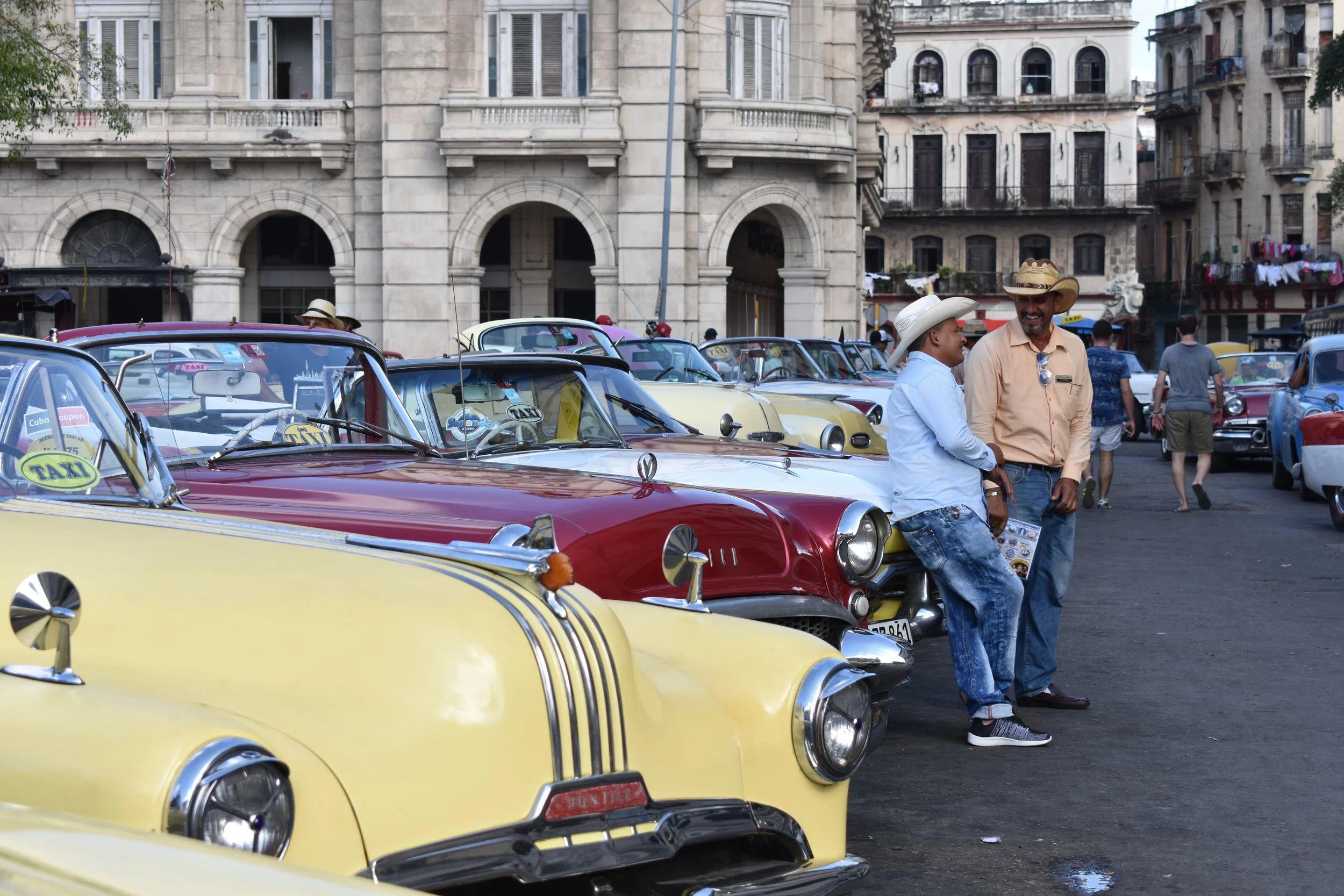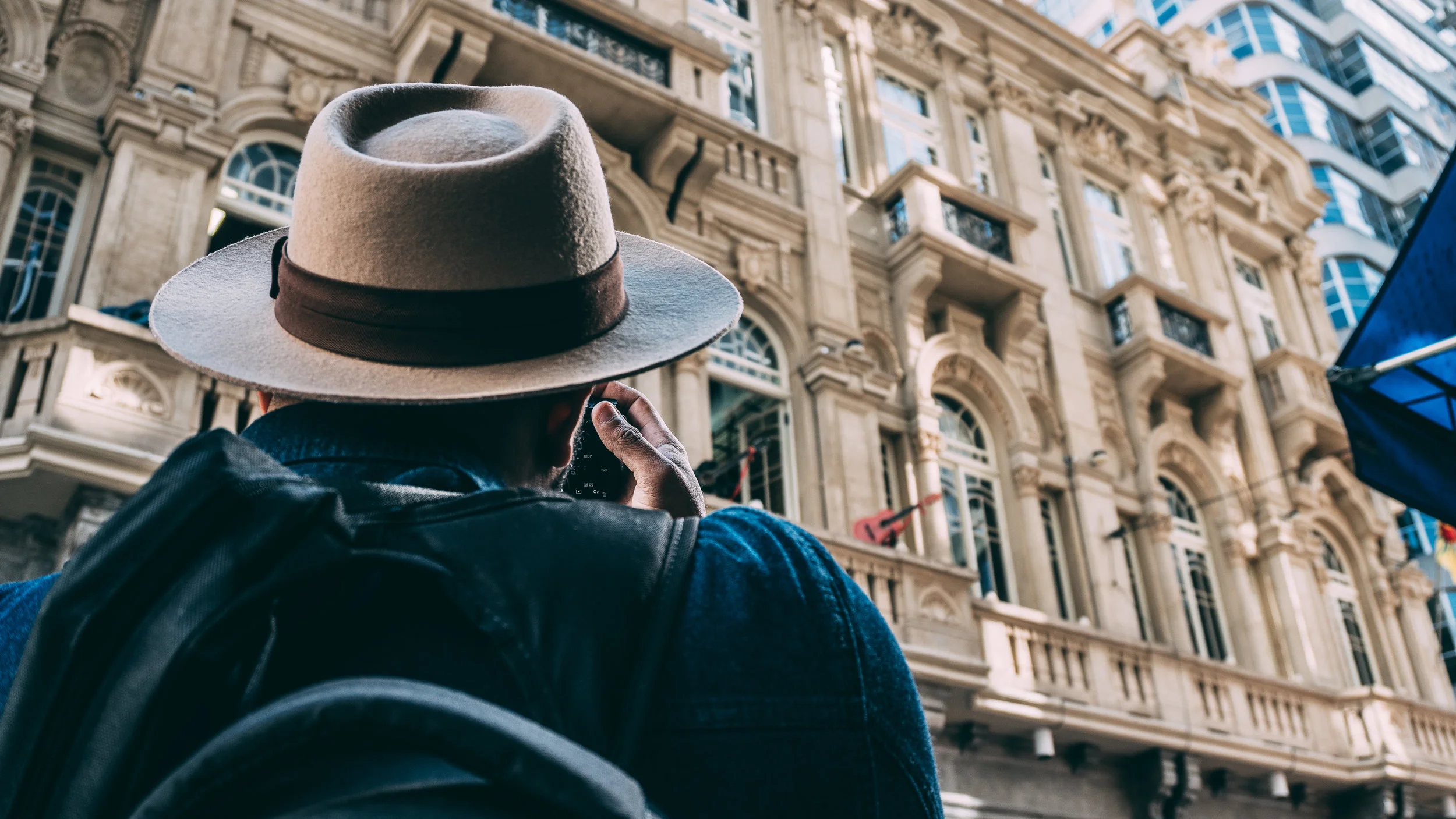Money. The root of all evil? Maybe. But, it does make the world go round regardless of if you’re in Kampala or Kentucky. If you’re reading this then you’re like me. You want to travel the world without going broke within a week. You most likely have forgone frivolous luxuries like that extra pair of shoes you don’t need, a night or two on the town with friends that depletes the personal reserve of your pockets, a delicious, albeit expensive, meal at your favorite restaurant. Steve Jobs (R.I.P.) supposedly said, “My favorite things in life don't cost any money. It's really clear that the most precious resource we all have is time.” So, the purpose of this post is to help you, while traveling, save what you can financially so that you have more time to enjoy worlds unknown to you. Let’s get started.
Now, I know that prices of goods and services vary from city to city and country to country. Hell, that’s the point of a world economy, isn’t it? So, these tips are by no means the end all be all of ways to travel on a budget in any country. In fact, I’d love, after reading this, for you to leave a comment with anything I may have missed – sharing is caring.
A rickshaw ride in the byzantine labyrinth of Varanasi, India
Find the Cheapest Places to Eat ASAP!
As you travel, you may find that much of your expenses aren’t taken up by transportation costs and various excursions, but food. Regardless if you’re paying a few bucks for a meal or more than a few bucks, food adds up. This is especially true in countries that are what I call money mirages. They look cheap on the outside, but can end up being much more expensive once you’ve been there for a while. This is because, psychologically, we see cheap prices and often end up purchasing a higher quantity of (insert whatever you like), which ends up depleting our funds all the same. For example, after seeing how cheap alcohol was in Cuba, a friend of mine started to buy beer after beer and mojito after mojito. Now, he got more bang for his buck, but still spent more than he wanted to. In fact, he probably ended up spending much more than he wanted to because of the money mirage that everything was cheap. I feel confident speaking for my friend, because “my friend” is code for “me.”
So, your first order of business should be to find the cheapest places to eat. In many countries, these local eateries have specific names you can recognize them by. For example, in Cuba, the cheapest places to eat are Cafeterias. In Indonesia (Bali, etc.), they’re called Warungs. In Costa Rica and much of Central America, Sodas, etc. The list goes on and on, but if you want to save, it’s on you to find these places quickly and eat at them for majority of the time you’re there. It’s obviously okay to splurge once in awhile, but eat majority of your meals in these places. And, even though they’re cheap, they often have some of most delicious and authentic food. If you’re in a “developed” (I use that term tongue in cheek), cheap eateries may not have a specific name, but you can find them all the same. Ask a local, ask a taxi driver, phone a friend, etc.
Delicious food in Viñales, Cuba - at $6, the meal was on the more expensive side
Take the Number 11 for Transportation
The cheapest way to get around any city is to take the number 11 as often as possible. I took the number 11 often in Cuba, opting to ride that for a few miles opposed to grabbing a taxi or a bus. The same for Costa Rica, Nicaragua, Kenya, Italy and other places I’ve been. But, wait. You don’t know what the number 11 is, do you? Well, one of my best friends in Abu Dhabi introduced me to it, so I’ll extend the same courtesy to you. Look down. Yes, look down at your legs. Left leg 1 + right leg 1 = the NUMBER 11! Clever, right? I thought so, too. What I’m saying is you can save a ton of money from walking place to place versus grabbing an Uber (many countries have a hostile view towards it, anyway), taxi, or even renting a scooter / bicycle. For example, I’m currently in Bali and I’m renting a scooter for $1.5 / day. It fits into my budget, but if I opted to walk around or grab a ride here and there, I could be saving around $45/mo.
“But, Mateo, I can’t walk everywhere! This is madness!” You’re right, you can’t walk everywhere. Some places, like Australia, require that you use a car to get around most of the country. If you want to go to anywhere a few hours away from your main base, you’ll need to use transportation. So, in that case, find the next cheapest form of transportation, typically a local bus or train or some form of taxi that takes multiple people to multiple destinations versus just being for you.
Note: If you can help it, never book in-country transportation before actually getting there. I made this mistake in Guatemala, and realized that if I had just purchased tickets while I was there, I could have saved $50+.
A weary driver in Jordan - he must’ve taken the Number 11 many times in life
Drink Less Alcohol at Restaurants, Bars and Clubs
If you don’t drink, ignore this. If you do, pay attention. Alcohol not only gives you a hangover, but it drains your pockets. A year ago I started to drink far less, only allowing myself two, three max, casual beers with friends unless the occasion was planned. This isn’t only a great way to save money before a trip (I’m sure if you do a quick calculation, you’ll see how much of your money goes to drinks at the bar/club), but it will saves you a ton of money while you’re actually in the country. Again, this is the same as food. Even if you’re in a country where a beer is $1, it will add up. One leads to two, two to three, three to four, four to the floor. I could have put this in the same category as food, but wanted to single it out as it becomes one of the main ways people go off budget when traveling. You meet people, make new friends, possibly want to ball out a bit and then realize you spent a lot more money in a week than you had planned for, and now you have less money to do more of the things you actually wanted to.
My friend Annie making the most out of a Toña beer in Nicaragua
Prioritize the Tours You Go On
Despite what Lonely Planet, Frommer’s or any of these guidebooks say, you don’t have to go on every tour offered. You don’t have to visit every “must see” place that you’ve probably read about for weeks. Why? Because many of these places are intentionally hyped up, and then they slap a crazy entrance fee for foreigners (which I agree with) who gladly pay it only to see something that isn’t all that great. And, don’t get me wrong. There are millions of amazing, once-in-a-lifetime sights to see in this world – it’s one of the main reasons I travel – but, if you want to extend your time in a country, prioritize the tours you go on. Pick the top 3-5 you really, deep down in your soul, want to go on, and only do those. The rest will most likely (no promises, given the negative effects of tourism) be there the next time you visit.
Semuc Champey in Guatemala - a tour that I 100% wanted to go on and was worth the money
Sleep in Hostels, Guesthouses and Local Homes
If you’re traveling on a budget, you really shouldn’t be looking for more than a clean bed and possibly running water. Seriously. You don’t need wifi (go to a cafe), you don’t need hot water (cold showers are pretty awesome, anyway), you don’t need good cell service and you sure as hell don’t need someone to clean up after you. These are all added comforts that are great, but unnecessary.
Instead, use HostelWorld to find the cheapest accommodation. If you’re feeling adventurous, ask a few locals where guesthouses are, and negotiate with the owner. And, while I really don’t want to mention this in the context of “cheap accommodation,” Couchsurfing is one of the best worldwide travel communities I’ve found where you can find amazing locals who are willing to hang out with you, share their culture and host you for a few nights. However, I can’t stress it enough that the point of Couchsurfing isn’t to find cheap accommodation. It’s one of the most dedicated and helpful communities I’ve had the honor of being a part of, and it’s people who are just looking for a free place to crash who ruin it. But, if you’re willing to share a bit of your culture, listen and understand another’s, as well as spend time with people who actually live in the country you’re visiting, then Couchsurfing is a great option. I do it almost everywhere I go.
Me hanging out on a catamaran in Guatemala, which a guy from Couchsurfing lent to me for a few nights
In regards to AirBnB, I’d avoid it. I rarely use it since hostels and all of the other options I listed are far cheaper. But, if I were to use a service to rent a place, it’d be Innclusive.
From volunteering to WWOOFing and Workaway, there are dozens of other ways to travel on a budget in any country. As I said above, if you have other tips and advice, which I’m sure you do, please leave a comment and share the love so that other people can spend more time traveling and less time worrying about money.
I’ll leave you with another arbitrary quote about money I only recently read but want to make you think I’ve lived by for years: “Money is only a tool. It will take you wherever you wish, but it will not replace you as the driver.” – Ayn Rand
Originally featured on SwagPapi: How to Travel on a Budget in Any Country
Mateo Askaripour
Mateo is a writer who quit his flashy job in NYC to live life on his own terms. He’s done everything from working at an orphanage in Nairobi to building a new university in Abu Dhabi to sleeping on volcanos in Guatemala. And right now, he’s working to get an agent for his book. His writing has been featured internationally in publications including Matador Network, Víkurfréttir, Caribbean News Now and Black & Abroad. Regardless of where he is, he’s always working. To keep up with him, follow him on Instagram & Twitter at @AskMateo and read one of his elaborate stories at SwagPapi.com


















